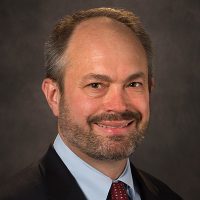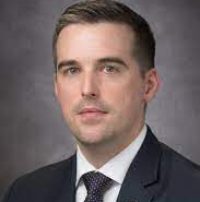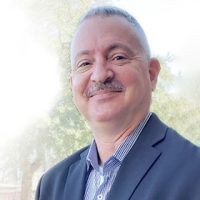Expert Panel:

Dr. William Wierda, President & CEO, CLL Global Research Foundation

Dr. Patrick Reville, Assistant Professor in the Department of Leukemia at The University of Texas MD Anderson Cancer Center

Jeff Folloder, Moderator and CLL patient advocate
Our recent CLL Global Research Foundation virtual town hall featured CLL Global President, Dr. William Wierda, and Dr. Patrick Reville, Assistant Professor in the Department of Leukemia at The University of Texas MD Anderson Cancer Center. CLL patient advocate Jeff Folloder moderated the event. Watch the full webinar.
Transcript
Jeff Folloder:
Let’s hear takeaways from our distinguished experts. Dr. Reville, you’ve shared your promising research. This is a common question that we ask. It’s simple but it’s important. Why are you hopeful about the future of CLL care?
Dr. Patrick Reville:
Yes, I think for me, I highlighted some of this at the beginning and some of the updates from ASH, but you know, we’re moving into a space where we’ve been able to move away from chemotherapy. We have really good, targeted therapy options that work well, and for most people work for a long time.
So, I think we’re getting to the space – and Dr. Wierda mentioned the word “cure” – it’s still an open question mark whether we can really, truly cure CLL, but I think we’re getting to a point where people are living normal lifespans with CLL.
And I think moving forward, we’re really hopeful that we can get to a place where people can spend more time off treatment than on treatment with some of these newer combinations that are coming down. So, really trying to focus on improving people’s quality of life in addition to improving the CLL outcomes. I think that those are some of the major goals over the next several years.
Jeff Folloder:
That’s great to hear, and it’s actually very comforting to hear. And as a CLL patient, I love the fact that we’ve moved away from chemo, and I also love the fact that because of all the research that’s going on, because of the work of CLL Global Foundation, every day that I wait to do treatment again means that it’s more than likely that something even better is coming along.
Dr. Wierda, we’ve talked about your foundation, we’ve talked about research, we’ve talked about all this good stuff. What would you like to say to our audience to close out the program?
Dr. William Wierda:
I’m an optimistic person, and I’ve remained optimistic, and I continue to be optimistic about curative treatment for CLL. I think we have the tools, we just need to figure out how to use them. And I’m also intellectually curious about this immune dysregulation that we see, and I think part of the cure, we have immune-based strategies, but they don’t work quite as well in patients with CLL compared to other types of cancer, like lymphoma.
So, figuring out what the reason is for that and to modify it so that it is as effective, if not more effective, for our patients with CLL to develop curative therapies are things that get me up in the morning and get me excited about working with young investigators like Patrick and individuals who are excited about the disease that we work with in doing our translational study.
I think since this is a – transitional studies, I think since this is predominantly a group of patients, I think CLL historically has had a community that’s unique compared to other diseases. We don’t see a similar community of patients for other diagnoses, like AML or CML. Patients tend to be very educated about their disease and knowledgeable. They have time to research it, they have time to investigate, they have time to search and find doctors.
I think educating them and educating each other about the importance of research, the importance of participating in clinical trials, right now that’s a bit of a barrier for us. We have suffered a little bit from our success, which is a good thing because we have many patients who are in remission and who are doing exceptionally well.
And at the same time, we have a lot of clinical trials open with new and exciting drugs that we are very excited about and would like to work with and advance and integrate into use in treating patients with CLL.
So, I think thinking about clinical trial options, investigating clinical trial options, we aim to design it, in our MD Anderson CLL program, we aim to design trials and treatments for patients that are potentially better than what they can get as standard of care.
So, I would like patients to think about clinical trial options not as a guinea pig option, but potentially a better option for them, and also an option that allows us to learn and understand and advance treatment for our patients with CLL. So, that’s my brief advertisement for clinical research, and it is a very important topic for our patients to be thinking about and to be considering as an option.

